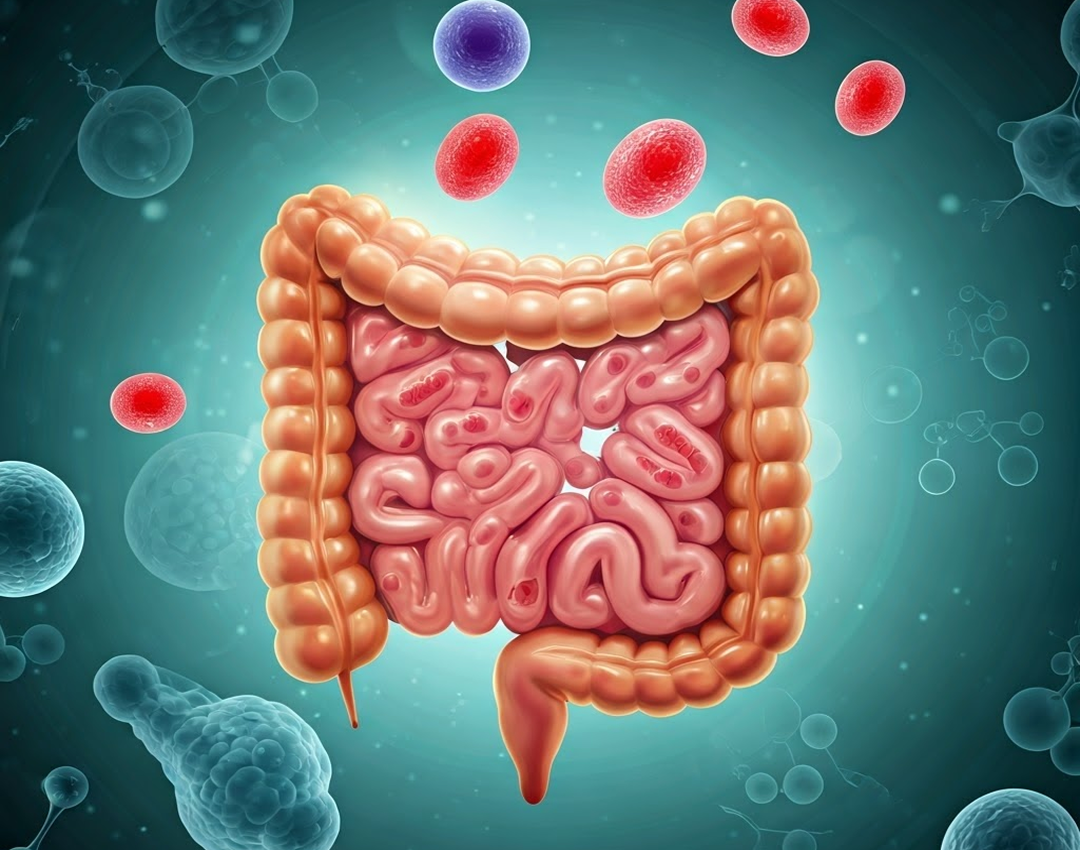Key Highlights
- Mindfulness practices, like meditation and breathing, can help lessen withdrawal symptoms during detox.
- A chemical detox may bring emotional ups and downs, but mindfulness builds strength to deal with these feelings.
- Using mindfulness techniques in addiction treatment takes a full approach. It considers both physical and mental health.
- Practical activities, like tai chi and mindful movement, help clear thinking and improve both physical and mental health during recovery.
- Mindfulness-based programs can reduce cravings by up to 20% and significantly improve recovery results.
Introduction
Dealing with addiction treatment can be tough. When a person is detoxing, it's important to pay attention to both the body and the mind. Detox is not only about getting the body clean; it also affects mental health. This is especially true for those recovering from alcohol or drug abuse. Using mindfulness practices during this tough time can help manage feelings. It can also create a strong foundation for staying sober. This guide will show you how mindfulness can support your mental well-being during your recovery journey. It will help you learn to focus on the present moment and take back control of your life.
Understanding the Mental Challenges of Chemical Detox
The mental challenges during a chemical detox arise from physical withdrawal and stress. As drugs clear from the body, many people feel emotional highs and lows. This can create more anxiety and sadness. It is important for people to have good ways to handle and calm their minds during this tough time.
Facing these challenges can feel like a lot. You need to be patient and have support. Using strong methods, like mindfulness, can help you deal with mental health conditions during detox. This important first step prepares your mind for the healing you need on your recovery journey.
The Psychological Impact of Detoxification
The mental stress from detox can be hard to handle. Withdrawal symptoms like anxiety, irritability, and trouble sleeping can make it tough for people to think about getting better. Those who have mental health disorders may struggle even more. This can create a cycle of emotional problems.
Many people find it hard to handle the strong emotions that come with these symptoms. When someone uses substances, it becomes tough to manage their feelings. This makes it challenging to deal with distressing feelings or cravings on their own. Because of this, there is a higher likelihood of relapse.
Using methods like emotional regulation from therapies such as cognitive behavioral therapy (CBT) and dialectical behavior therapy (DBT) can help lessen these feelings. Mindfulness techniques can help people watch their thoughts without judging them. This practice allows them to deal with stress calmly and clearly. It's important to concentrate on emotional healing while going through detoxification.
Emotional Fluctuations During Detox
Detoxing can cause emotional highs and lows. It’s normal to feel fear, guilt, or think negatively as your body adjusts to life without substances. It’s important to build your emotional resilience during this time. This helps people cope with feelings of helplessness and supports healing.
Addiction is connected to strong feelings that usually relate to past trauma or hard relationships. When a person goes through detox, these emotions can come to the surface. This can make it hard for them to feel good or stay positive. Mindfulness meditation can support emotional balance during these tough times.
Focusing on resilience can help you feel your emotions better over time. Mindfulness exercises, like mindful breathing or guided imagery, keep you focused on the present moment. Practicing this can make you feel less distant. These methods build your inner strength and reduce emotional triggers that might interrupt your detox progress.
The Role of Mindfulness in Managing Detox Symptoms
Mindfulness provides helpful tools to manage withdrawal and detox symptoms. When you focus on the present moment, you can avoid strong emotions and cravings that may come up during recovery. Techniques such as mindful breathing and body scans can help you feel calm when dealing with tough times.
Mindfulness is very effective when combined with traditional detox methods. It takes a holistic approach to wellness. This practice helps strengthen our mental and emotional well-being. It encourages people to handle cravings in a healthy way and find emotional balance. This combination supports the mind and soul during the detox process.
Defining Mindfulness in the Context of Detox
Mindfulness means being aware and focusing on the present moment. It is very helpful during detox. It helps people focus on today instead of worrying about cravings or fears. When people practice mindfulness, they pause to think before they act. This lets them respond to their experiences rather than just reacting without thinking.
A holistic approach to detox centers around mindfulness. Being aware of how your body feels during withdrawal symptoms can help you manage your emotions better. When you learn to control these feelings, you can stop distress from getting worse and build your mental strength.
Mindfulness is more than just staying focused for a long time. It helps people change difficult situations into opportunities for personal growth. When you encounter challenges, thinking of them as temporary can highlight the value of mindfulness. It can greatly aid in emotional recovery and boost your mental health during the detox process.
Practical Mindfulness Exercises for Stress Reduction
Practicing mindfulness is a great way to reduce the stress that comes from detox. You can practice mindfulness in different ways, mostly through meditation and being aware of your thoughts and feelings. Here are some helpful techniques to manage stress during detox:
- Mindfulness Meditation: Focus on breathing. Let your thoughts rise and fall without judging them.
- Body Scans: Notice how your body feels from your head to your feet. Acknowledge any tension or pain.
- Mindful Walking: Be aware of each step you take. Try to sync your breathing with your movements.
- Physical Activity: Practice activities like tai chi or yoga to feel relaxed and boost your physical health.
- Guided Relaxation: Listen to audio guides that help you picture calm places and balance your feelings.
Doing these exercises often helps you feel better in your body and mind. They make you stronger as you move along your recovery journey.
Techniques to Enhance Mental Clarity and Focus
Improving your mental clarity is key for good detoxing. Meditating and doing breathing exercises helps you to focus better. These activities can also reduce the tiredness caused by withdrawal symptoms. Taking short breaks during your day can refresh your mind, too.
This balance lets you concentrate on healing and getting better. It also helps deal with the mental fog that can come during detox. When you use these methods together, they provide a clear plan. This plan boosts your mental clarity and helps you stay focused during detox and after your recovery.
Meditation Practices for Cognitive Support
Meditation can help a lot when you feel mentally slow during withdrawal. It can improve your mental clarity and help you with your detox process as you heal. Meditating in a quiet place can clear your mind and make you feel refreshed.
Practicing meditation often can help you focus better and feel calm. You may feel happier as a result. It also prepares people for ongoing development in addiction treatments, like dual diagnosis treatment.
Meditation and stress management can make it easier to go from detox to recovery. They help you feel relaxed and strengthen your mind. This can lead to a smoother change.
Breathing Techniques to Alleviate Mental Fog
Using conscious breathing techniques can help you think more clearly during the detox process. Diaphragmatic breathing can increase mindful awareness and help with emotional regulation. This can reduce withdrawal symptoms. When people take deep breaths and exhale slowly, they often feel a renewed sense of purpose. This practice can help push away negative thoughts related to substance use. Regular practice can clear mental fog and improve overall health. It also supports the creation of a comprehensive recovery plan that empowers people on their addiction recovery journey.
Building Emotional Resilience Through Mindfulness
Practicing mindfulness can help people feel stronger during detox. When people pay attention to how they feel, they can deal with withdrawal symptoms and emotional triggers more effectively. This support helps them take charge of their feelings. Techniques such as mindfulness meditation and tai chi promote living in the present moment. By doing this, people can react better to negative thoughts. By using these methods, individuals can grow their inner strength. This growth can lead to personal development and improve their chances of success on their recovery journey from substance use.
Strategies for Cultivating Inner Strength
Being aware and present is really important. It helps you feel stronger while going through the detox process. Mindfulness practices, like meditation and tai chi, connect you to your bodily sensations and emotions. This connection can make you feel more emotionally strong. Doing physical movement, such as outdoor activities, helps to clear your mind and gives you a renewed sense of purpose. Techniques like cognitive behavioral therapy can help you challenge negative thoughts. This can improve your recovery journey and lower the chance of relapse.
Mindfulness Approaches to Handling Cravings and Emotional Triggers
Practicing mindfulness helps people notice and manage cravings and feelings more effectively. Mindfulness meditation increases awareness of bodily sensations and thoughts. It creates a safe space to explore deep emotions without being judged. Techniques like deep breathing and grounding exercises can relieve withdrawal symptoms. These methods help you focus on the present moment and improve emotional regulation. By developing a renewed sense of purpose with these practices, people can approach their recovery journey with more strength and clarity.
Integrating Mindfulness with Traditional Detox Therapies
Combining mindfulness practices with traditional detox therapies is a good way to heal. Mindfulness meditation helps you become more aware of yourself. This self-awareness can make it easier to deal with withdrawal symptoms and emotional triggers during the detox process. Using these techniques can improve your mental clarity. They also help you better understand feelings related to substance use. Practicing mindfulness on a regular basis can boost your emotional resilience. This can lower the likelihood of relapse. It can also give you a renewed sense of purpose in your recovery journey.
How Mindfulness Complements Medical Treatments
Combining mindfulness practices with medical treatments can greatly support healing. Mindfulness helps people feel their bodily sensations and emotions. This is especially important during detox stages. A mix of these two helps people manage withdrawal symptoms and cravings calmly. By doing this, they can lower stress and boost mental clarity. Recent studies show that mindfulness improves addiction treatment and cuts down the likelihood of relapse. It offers a comprehensive recovery plan that meets specific needs and supports personal growth over time.
Case Studies: Success Stories of Mindfulness in Detox
Many people tell life-changing stories about using mindfulness during detox. One story is about a woman with alcohol addiction. She discovered that mindfulness meditation helped her think clearly. It also made her feel stronger when dealing with withdrawal symptoms. Another story talks about a man who used breath awareness to manage his cravings. This practice really lowered his chances of relapse. These stories show how mindfulness practices can help people during recovery. They promote personal growth and a renewed sense of purpose, even in tough times.
Conclusion
Incorporating mindfulness into the detox process can really help your mental health and emotional strength. This practice reduces withdrawal symptoms and helps you think better. It can also give you a new sense of purpose. Mindfulness techniques support your feelings, which is important during your addiction recovery journey. By using these methods, you can improve your chances of success. This adds to a complete recovery plan and paves the way for lasting change and well-being.
Frequently Asked Questions
What Are the First Steps to Incorporating Mindfulness into a Detox Program?
To make your detox process better, start by doing simple breathing exercises and meditation. Set up a daily routine with time for self-reflection and journaling. Slowly bring in mindful eating habits. This will help you pay attention to what your body needs as you go through the detox.



